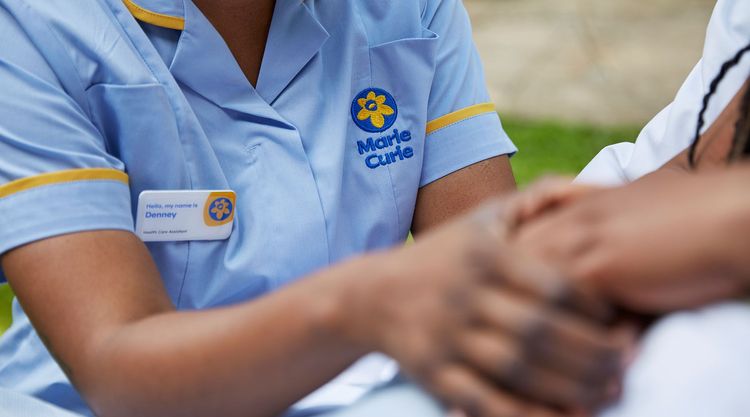Equitable Care for All Ethnicities (ECAE): Improving data collection on ethnicity and religion within palliative care settings
Marie Curie Research Grant Scheme
Duration: 20 months
Duration: 20 months
Researchers
Dr Gemma Clarke
Co-Lead Investigator
University of Leeds
Dr Sabrina Bajwah
Co-Lead Investigator
King’s College London
Watch: Equitable Care for All Ethnicities (ECAE)Watch: Equitable Care for All Ethnicities (ECAE)
Lay abstract
Background
There are increasing numbers of people in the UK from different religious and ethnic groups. People from ethnic minority groups are more likely to experience poor healthcare and have serious diseases. Palliative care can help people with serious and life-limiting illnesses to manage their illness, and have better end of life experiences. Data on people’s ethnic group and religion can be used to monitor patterns, and make improvements to palliative and other healthcare services.
Our team undertook the largest review of ethnicity data across UK palliative care, which showed poor quality data:
- 27% of patients had the wrong ethnic group recorded.
- 40% of patients had different ethnic groups recorded across different record systems (known as inconsistent recording).
- People from ethnic minority groups were more likely to have a wrong, or inconsistently recorded, ethnic group.
The review showed specific issues for palliative care: around 30% of patients were too unwell to talk about their ethnicity. This is an issue in palliative care because many patients are unwell, and lose their ability to make decisions.
Aim
To work with patients from ethnic minorities to design a palliative care-specific ethnicity and religion data collection guide.
Methods
- Discussion groups with patients and family members from different ethnic backgrounds (up to 36 people), and 8-10 interviews with healthcare professionals to find out their views.
- Five workshops with patients and healthcare representatives to design a data collection guide.
- A two-month trial of the guide in three palliative care settings, to look at practical issues with using the data collection guide.
Impact
The guide will be promoted and distributed in England using workshops and training.
Improving ethnicity and religion collection in a culturally safe and accurate way will mean services can accurately monitor patterns and make changes leading to better palliative care for all.

